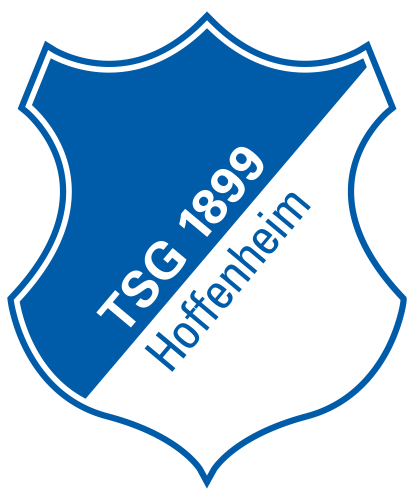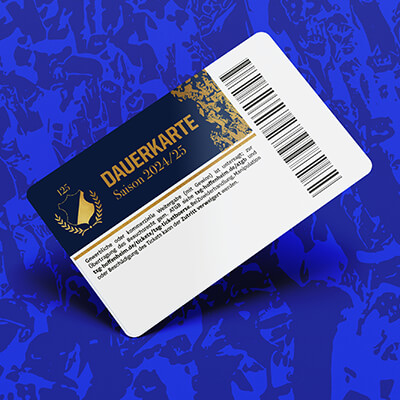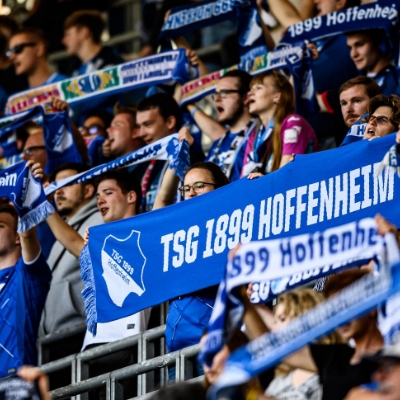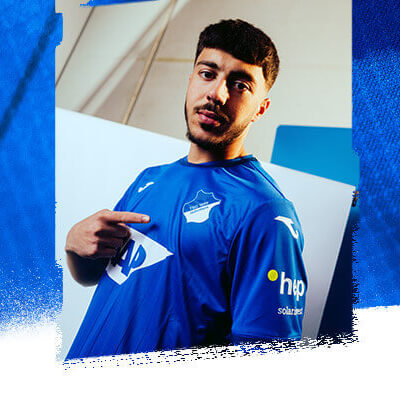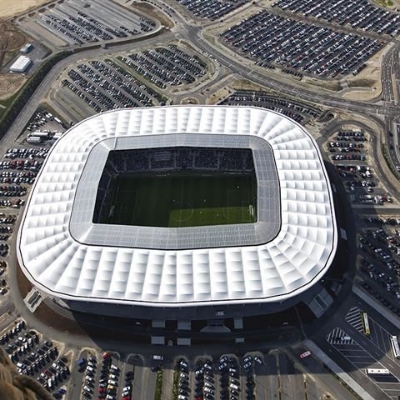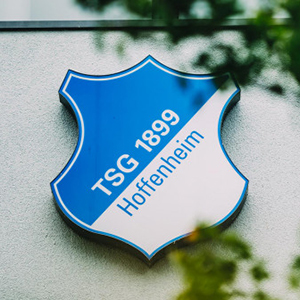Pascal Groß: Flying high with the Seagulls
Groß joined the TSG Hoffenheim U17s along with six other talented youngsters who were all coached by his father Stephan at VfL Neckerau. He made his Bundesliga debut at the tender age of 17 as a substitute in Wolfsburg and went on to establish himself in the second tier, enjoying a spell at Karlsruher SC before joining FC Ingolstadt in 2012. It was in Bavaria that his career really took off: Groß was the most valuable player in 2014/15 as FCI won the second division title to secure promotion to the Bundesliga, where he and the "Schanzer" hit the ground running.
In the summer of 2017 Groß was lured to the south coast of England by Brighton & Hove Albion, who had returned to the Premier League for the first time in 34 years – although at the time the Seagulls had last played in the top tier of English football it had still been called the "First Division". Brighton boss Chris Hughton made it abundantly clear he wanted to sign the former Hoffenheim man, who was soon living the dream of many young footballers, playing in some of the world's most storied stadia such as Old Trafford or Anfield. He has since amassed more appearances in the Premier League (78) than he has in the Bundesliga (70). He has only missed 13 of the 92 matches since his arrival due to injury and has been included in the starting XI 71 times. His contract runs until 2022.
Our meeting with Pascal Groß took place at a London hotel, where he was preparing for a clash with Arsenal. The Seagulls went on to win the match 2-1, earning a crucial three points in their fight for survival. The man with the No. 13 on his back was making his 14th start in 15 Premier League matches.
Pascal, what's it like living in the seaside town of Brighton?
Brighton is a wonderful city. It takes me three minutes to run to the sea, there are a lot of lovely cafés on the promenade and the centre of London is only a 50-minute train ride away. I feel very comfortable but I'm here first and foremost to play football and not to enjoy the wonderful scenery.
You've established yourself as a key player over the last two and a half years, although you were sidelined with an ankle injury in autumn 2018 and a thigh problem in spring 2019. How do you see your role in the team?
I'm one of the senior players and that means I have an important role. If I've not been injured, I've always played and given the team impetus by scoring goals, getting assists, starting goalscoring moves and tracking back.
You're an international bunch. Have you and some of your team-mates already developed a kind of friendship?
There are already a few lads who, like me, have been here since promotion and are more or less my age. For example, Lewis Dunk, Shane Duffy and Dale Stephens. My schoolboy English has got lots better thanks to them.
Talking of school, back in the day you did your A-levels at the Wilhelmi-Gymnasium in Sinsheim with the help of "Kick Into Life". How important is it for an established footballer to have A-levels?
Very important. I'm delighted that I persevered with it back then, even though it was very tough. I used to take the train from Mannheim at 6:06 in the morning to get to school on time, then it was straight off to training, homework, learning – that was quite some pressure for a young player. But you can't always take the easy route in life and I felt it was a sensible investment in my future – and one that I would encourage every young player to do.
Your former team-mate Jürgen Locadia has now joined TSG on loan. What was your take on him in Brighton?
Jürgen is a good lad, always funny, just like you imagine a footballer to be. He was often our resident DJ and put the music on. He didn't have it easy, but even in the difficult moments he always conducted himself impeccably.
What has been your best experience in England since arriving two and a half years ago?
Scoring a header to get us a 1-0 win at home to Manchester United in a Friday evening fixture. The stadium was pretty much bursting at the seams, and those three points helped us to secure our top-flight status in the first season. I'll never forget that.
What's your take on your current situation?
We obviously want to stay in the division. It'll be very difficult, because a lot of teams below us in the table are packed closely together. We need to make sure we don't get sucked into that and pick up enough points before we can start thinking about other things.
Your career path has not always been straightforward, but ultimately it has always been an upward trajectory. Did you get it all right?
I always felt I was underestimated as I was always told I was too phsyically weak or lacking tempo. But that never got to me; in a way it was a kind of motivation. I've achieved a lot through desire and ambition, but ultimately it does also come down to abilities such as speed of thought, technical execution, two-footedness, etc.
Your father played for Karlsruher SC in the Bundesliga in the 1980s. He was your coach for many years before you moved to Hoffenheim and regularly attends your matches. What role does he play in your life?
He's obviously very important to me – as a person and a friend. It's no longer like it used to be when he was my coach; that's changed now. But he started me on my journey and now accompanies me on it.
Which former Hoffenheim team-mates are you still in contact with?
Marco Terrazzino and Anthony Loviso, who moved from VfL Neckerau to TSG with me in 2007, and Maurice Hirsch, another Neckerau lad who's two years our junior. And I've never lost touch with Sejad Salihović, who helped me a lot as a young player. I hope I haven't forgotten anyone...
The German title, the DFB Cup triumph, your professional contract, your Bundesliga debut – what was your best TSG moment?
Every young player dreams of the Bundesliga, so my debut in Wolfsburg is right up there. But becoming a German B-Youth champion was a fantastic experience as well. We'd all come from Neckerau back then, where everything was 10 times smaller. Then we had that incredible season, playing the final in front of 6,500 fans at the Dietmar-Hopp-Stadion and putting six goals past Dortmund. I got one of them, I naturally have very fond memories of that.
Do you still follow German football?
I'm football-crazy and I watch an awful lot of English football, but I do follow the Bundesliga very closely too and watch almost all the TSG games, especially as I have a very close friendship with "Hübi" (editor's note: Benjamin Hübner). We had a superb time together at FC Ingolstadt that I do not want to forget. But I'm also delighted that SV Waldhof have been promoted to the third division; after all, I was born in Mannheim and I still have a lot of friends in the city and at the club. One example is Max Christiansen, whom I played alongside in Ingolstadt too. Unfortunately, I can't watch any of the Waldhof games in England; my only access is via highlights on social media.
The TSG U17s and U19s are currently doing well in the Junior Bundesligas. Just like you 10 years ago, our current crop of talented youngsters are dreaming of professional football. What tips would you give them?
I always highlight two points. The first is that I need to know where I want to be and that I should always keep my feet on the ground for as long as I haven't achieved anything. Secondly, I need to work on my weaknesses, work continuously on the things that are less fun, always want to improve myself and bounce back quickly from setbacks.
You made several international appearances at junior level and have on occasions been the top assister in the Premier League, but you've never quite got the recognition in Germany outside of the Rhine-Neckar region. You've never been in contention for Jogi Löw either. Does that annoy you?
As I've already said, I'm used to being underestimated. When we were promoted with Ingolstadt, I scored seven goals and racked up 23 assists too. Those were pretty good numbers, yet I've still never played for a big club and that's why I've never been in contention for a place in the national team. That's obviously the dream for every footballer, but I'm realistic enough to know that that particular ship has sailed for me, and so I prefer to concentrate on the here and now. I keep trying to produce good performances on the pitch and to perform regularly; that's all that matters.
The Premier League is seen as the cream of the crop. Let's get your insight. What's your take on it?
In my second match (editor's note: a 2-0 defeat away to Leicester City), I was fouled by Harry Maguire 10 times and the referee didn't blow his whistle once. That's when I realised that the clocks tick differently here and that I'd quickly need to adapt to the physicality. But there's also good and technically attractive football on offer; there's no doubt about that, even if it is tough. You can test yourself against the very best in the world here.
Which opponent has made the biggest impression on you to date?
Virgil van Dijk. He's a machine.
Have you already reflected on what you might do after hanging up your boots?
At the moment I'm really enjoying being able to play football at the highest level in England and I want to do this for as long as possible. As for what comes next, I've never made a secret of the fact that I'd like to return home to Germany. I'm a person who has a very strong connection to his roots.



